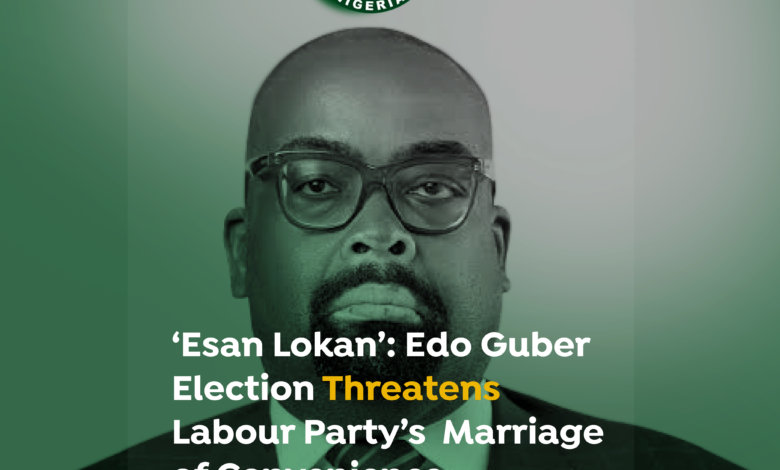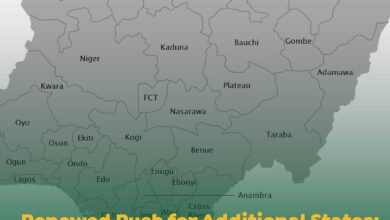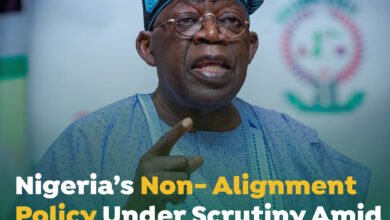‘Esan Lokan’: Edo Guber Election Threatens Labour Party’s Marriage of Convenience

The governorship election in Edo State is taking a tribal turn, with advocates of what is called the ‘Esan Agenda’ clamoring for the redress of a perceived wrong since 1999 when Nigeria returned to democracy: the failure of the state to elect an Esan indigene from the Edo Central district as governor.
A roll call of the state’s leaders from 1999 includes Lucky Igbinedion and Godwin Obaseki, both of whom are from Edo South, and Adams Oshiomhole from Edo North. Although Oserheimen Osunbor, an Esan man from Edo Central, was elected in 2007, he only occupied the seat for about a year before the court overturned his victory and declared Oshiomhole as the rightful winner of the election. This leaves a situation where one of the state’s three senatorial districts has never held the office of governor for a full term.
The ‘Esan Agenda’ movement seems to have received broad acceptance in the two major parties of the incumbent PDP and APC. Both parties have nominated candidates from Edo Central – Asue Ighodalo (PDP) and Senator Monday Okpebholo (APC) – to represent them at the polls. However, the Labour Party, the home of Obidients, took a different path.
The party elected former NBA President Olumide Akpata, who is from Edo South, as its candidate. If he wins, Edo South would hold onto the reins of governance for 12 years straight before another election is conducted. Esan people find the prospect unacceptable, including those who identify as members of the Labour Party and backed in the general election.
Many of them have already taken to social media to express their frustration. Whereas other members of the party are insistent on party supremacy, meaning that members have to demonstrate their loyalty to the Obidient movement by supporting the candidate of the party in the state; Esan indigenes deem such a message as insensitive to their plight and a disregard of the peculiarities of the state. They are threatening to break ranks with the party, suggesting that, for them, tribal affiliation and regional aspiration form the base of partisan support.
Critics have noted that the action runs counter to the stance of ‘Obidients’ in the last general election in which they argued that the ethnicity of candidates should not matter and smeared those who emphasized the importance of cultural representation and championed regional aspiration as bigoted tribalists.
The confusion adds to the complexity of an election with few assurances. It also underscores that minus support for Peter Obi, Obidients have little else in common, making their assembly in the last election a mere marriage of convenience. That marriage is now threatened by the strong currents of local politics, and a bitter divorce may be in the offing.





